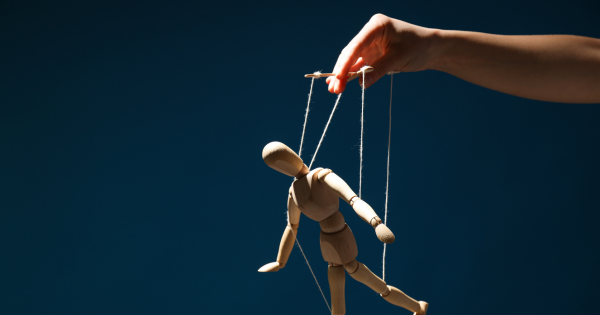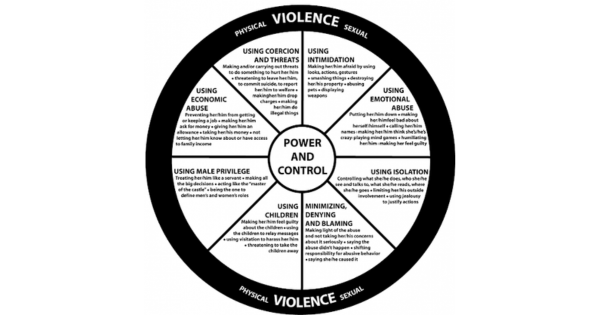Power And Control

A Guide To Recognising Abuse
When we think about abuse, the immediate image that often comes to mind is physical violence. However, abuse can take many forms, and understanding these forms is crucial for recognizing and addressing abusive behaviours.
One of the most effective tools for understanding the dynamics of abuse is the Power and Control Wheel. Developed by the Domestic Abuse Intervention Programs in Duluth, Minnesota, this wheel illustrates the various tactics abusers use to exert power and control over their victims.
What is the Power and Control Wheel?
The Power and Control Wheel is a visual representation that outlines the different behaviours and tactics an abuser uses to maintain dominance over their partner. It highlights that abuse is not just about physical violence but includes emotional, psychological, and economic tactics that create a pervasive pattern of control.
The wheel is divided into several sections, each representing a different type of abusive behaviour.
Intimidation
This involves making the victim afraid through looks, actions, and gestures. It can include smashing things, destroying property, abusing pets, or displaying weapons.
Emotional Abuse
Emotional abuse includes putting the victim down, making them feel bad about themselves, calling them names, playing mind games, and humiliating them. This tactic is aimed at eroding the victim’s self-esteem.
Isolation
Abusers may control what the victim does, who they see and talk to, where they go, and what they read. They might also use jealousy to justify these actions, making the victim feel guilty for wanting to spend time with others. Causing family arguments for example so you are estranged and withdrawn from your support network.
Minimizing, Denying, and Blaming
This involves making light of the abuse, denying that it happened, or shifting the responsibility onto the victim. Phrases like "You're too sensitive" or "It's your fault I get angry" are common.
Children
An abuser may use children to manipulate their partner. This can include making the victim feel guilty about the children, using children to relay messages, or threatening to take the children away.
Male Privilege
This section highlights behaviours rooted in traditional gender roles. It includes treating the victim like a servant, making all the big decisions, and acting like the "master of the castle."
Economic Abuse
Economic abuse involves controlling the victim’s financial resources. This can mean preventing them from getting or keeping a job, making them ask for money, giving them an allowance, or taking their money.
Using Coercion and Threats
This involves making and carrying out threats to harm the victim, threatening to leave them, commit suicide, or report them to welfare. It can also include making the victim do illegal things.

Why Understanding the Wheel Matters
The Power and Control Wheel is not just a theoretical tool; it is a practical guide for identifying and understanding the multifaceted nature of abusive relationships. Recognizing these behaviours is the first step toward addressing and ending abuse.
Knowing the different forms of abuse enables better intervention strategies. Support services can be tailored to address the specific tactics used by the abuser, providing more effective help to the victim.
Knowledge is empowering. For victims, understanding the dynamics of abuse can help them reclaim their power and seek a safer environment. For society, it fosters a culture of zero tolerance toward all forms of abuse, not just physical violence.
The Power and Control Wheel is a vital tool in the fight against domestic abuse. By illuminating the various tactics abusers use to exert control, it helps us understand that abuse is complex and multifaceted. Recognizing these patterns is the first step towards breaking free from the cycle of abuse and creating a society where everyone can live free from fear and oppression.
If you or someone you know is experiencing abuse, reach out to local resources, hotlines, or organisations dedicated to helping victims of domestic violence. Remember, no one deserves to be abused, and help is available.
Education and Awareness
For survivors, recognising that what they are experiencing is abuse is crucial for seeking help. For friends, family, and professionals, understanding the wheel helps in providing the right support and interventions.
For survivors, recognising that what they are experiencing is abuse is crucial for seeking help. For friends, family, and professionals, understanding the wheel helps in providing the right support and interventions.
Knowing the different forms of abuse enables better intervention strategies. Support services can be tailored to address the specific tactics used by the abuser, providing more effective help to the victim.
Knowledge is empowering. For victims, understanding the dynamics of abuse can help them reclaim their power and seek a safer environment. For society, it fosters a culture of zero tolerance toward all forms of abuse, not just physical violence.
The Power and Control Wheel is a vital tool in the fight against domestic abuse. By illuminating the various tactics abusers use to exert control, it helps us understand that abuse is complex and multifaceted. Recognizing these patterns is the first step towards breaking free from the cycle of abuse and creating a society where everyone can live free from fear and oppression.
If you or someone you know is experiencing abuse, reach out to local resources, hotlines, or organisations dedicated to helping victims of domestic violence. Remember, no one deserves to be abused, and help is available.
My Experience
I always thought myself well versed in domestic abuse, manipulation tactics and how to keep myself safe until I entered into a relationship during the pandemic.
I knew it wasn't right, he made us, as a family deeply unhappy and decimated our entire lives. Mentally, emotionally, financially and physically. It wasn't until I attended Woman's Aid and one of their courses did the full effect of what had happened hit me.
When I was given the wheel, I broke down in tears and could not stop. He had hit every single section of the wheel and I was not aware of it.
Working through what had happened to us with the help of Woman's Aid, gave me the understanding and knowledge that how he had been was abuse, no matter what he said or did to try and convince us otherwise.
I decided to share the wheel with my children as they were all old enough to comprehend and discuss the different areas and what their experience of it was.
It was hard to accept that as an educated, successful and independent human that I had been 'tricked' and used by such a horrid individual. It took me a while to accept what we had fully experienced and to overcome the shame and guilt of the whole situation.
This wheel is now a handy tool that I like to utilise and look back on from time to time to remind myself just how far we have come.
Jenn

Your life, Your choice. Free-Spirited Coach Jennifer Taylor here to help you gain the choices within life that you desire. Ready to break down society's pressures and find your own path? Let's do this!
Mental Health Advocate | Domestic Abuse Survivor | Exploring Human Behaviour & Wellbeing | Trauma Informed
coach[koh-ch] noun
A person dedicated to bringing the best out of you by encouraging, inspiring and believing.
info@jenntaylor.co.uk
www.jenntaylor.co.uk
078078 52292

